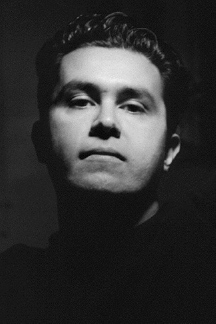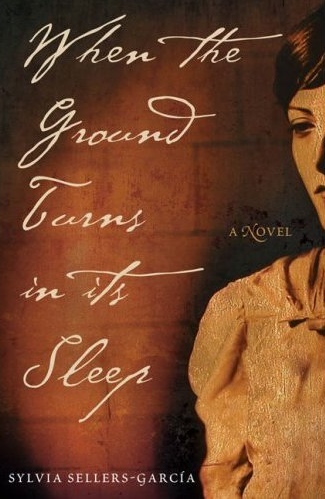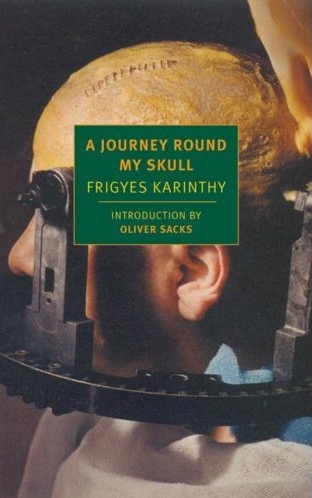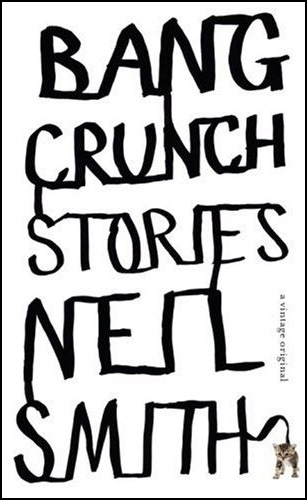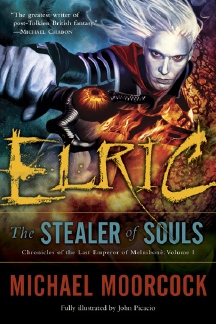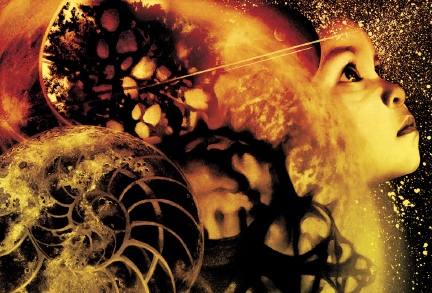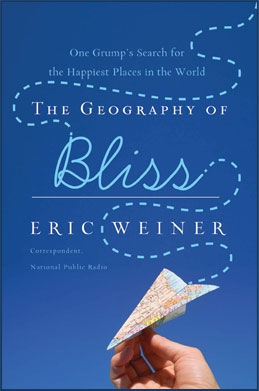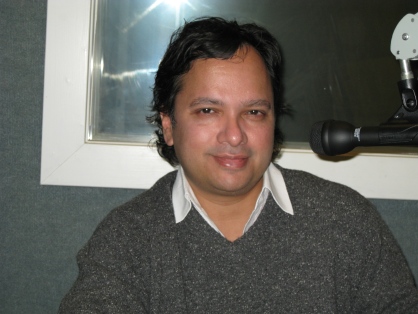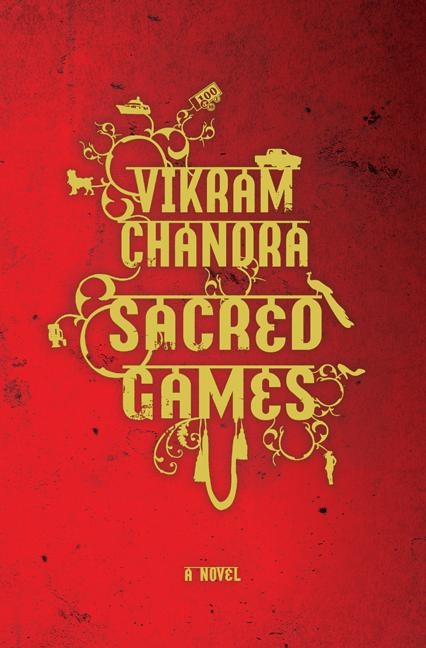|
|
|
|
This Just In...News
From The Agony Column
|
| |
|
01-18-08: Sylvia Sellers-Garcia Knows 'When the Ground Turns In Its Sleep'
|
"It's inevitable
that we edit"
|
|
Cover
photo by Luis González Palma, chosen by the author.
|
Some stories have
to be heard to be told. In the case of Sylvia Sellers-Garcia,
those were the stories her mother told her about Guatemala during the "armed
conflict." I put that in quotes because as Sellers-Garcia told
me, there are still people who live in Guatemala who will tell you
there was no "armed conflict." So of course, you can understand
where her comment about editing comes from.
But it could also quite certainly refer to the editing she herself did to
create 'When the Ground Turns in Its Sleep' (Riverhead Books / Random House
; January 1, 2008 ; $$24.95), a labyrinthine journey into the silence of
a small village torn asunder by the "military action." Sellers-Garcia's
novel is spare; the prose is cut to the bone. It's very simple – at
first. Nítido Amán arrives in the village of Rio Roto, looking
for his birthplace. But he's mistaken for a priest, and in the true fashion
of a Kurt Vonnegut hero, he simply assumes the role. "Be careful what
you pretend to be," is something we think we know by now, but it's all
too easy to forget when you're in a country that you know only from your
parents' stories and the memories of a child. There's something very dark
and quite horrific behind the shattered remains of the school, beyond the
forests. Deeds that benefit from our propensity to edit memory.
'When the Ground Turns in Its Sleep' is a powerful, sparse meditation on
silence, memory and identity, the sort of book that sneaks up on you. As
Nítido becomes part of a world he may once have inhabited, the layers
of lies fall away, the tales begin to tell themselves. Woven into the fabric
of the novel are letters and journals and stories within stories.
It all seems very simple, but when you hear my conversation with first-book
writer Sylvia Sellers-Garcia, you'll know it's anything but simple. I talked
with her extensively about not just the memories of her family that she mined
to create the book, and her own personal experiences that led to the book,
but the process of writing the book itself. She's a grad student getting
her Ph.D. at Berkeley, and not surprising immersed in writing of a very different
sort from that found in her novel. She told me how the two types of writing
informed one another, and the layers and years of editing that turned a series
of images into a published novel. Listen
to her story; that told in the novel and the story she told me. We live
in a world that encourages forgetfulness. Perhaps, by reading and listening
to stories, we can learn to remember.
|
| |
|
01-17-08: Frigyes
Karinthy Offers 'A Journey Round My Skull' ; Agony Column Podcast
News Report : Hugo Chat With Jeremy Lassen
|
"Death Tempts
Me"
|
|
Ever
get a bit of a headache?
|
Well it might, if
it were early days in the 20th century, and while sitting in a café in
Budapest, drinking tea and sweating bullets. First there's the big
decision that Frigyes Karinthy finds himself faced
with; write the monograph on society's ills or the three-act play? Then there's
the pesky crossword puzzle, dominated by that stupid "oft-used phrase" that
nobody's ever heard of until it is revealed in the puzzle. It was making
Karinthy sweat, concentrate until he was red in the face.
And just to top things off, the trains come by. Rumbling, coming, the whole
Doppler effect that makes them a standard-issue on sound effects compilations.
But of course, Karinthy knows that there is no train; perhaps it was a lorry.
So he starts the puzzle again, only to hear another damn train. And another.
And a fourth. Until he realizes that there is no external sound. He's hallucinating.
Welcome to 'A Journey Round My Skull' (NYRB Classics / Random House
; March 11, 2008 ; $17.95), a genial if frightening memoir by a man
who documented
his own decline with dark humor and warmth. You'll meet not just Frigyes,
but also "Little Me," the editor within the writer who makes sure
that Frigyes understands that, "Reality as a genre requires no helping
hand from the artist." First published in English in 1939, Karinthy's
memoir here gets an introduction by Oliver Sacks, who admits that he read
it as a teenager and one can clearly see it imprinting him in the way that
Isaac Asimov or Arthur C. Clarke imprinted many of today's science fiction
writers. Sacks calls the book a masterpiece, and assuming you like medical
memoir with lots of really weird hallucinations, then you might be likely
to agree.
Karinthy is skilled enough so that his wit and charm manage to cross
the translation and the time barriers. He's just so straightforward
about everything
that it's hard not to believe that, for example, "The mirror opposite
me seemed to move." As the visual hallucinations mount, as auditory
hallucinations become more intense, Karinthy seeks medical help – 1936
style.
Though 'A Journey Round My Skull' has been out of print for more
than 30 years, though it was written in 1936, it seems utterly contemporary.
The
question of reality is ever with us. We are immersed in our perceptions,
even if they dont correspond to physical reality – just as we
are immersed in a good book. Of course, we can always put down the book should
it become too intense; a brain tumor does not offer the same choice.
|
Agony Column
Podcast News Report : Hugo Chat With Jeremy Lassen
Today's Agony Column
Podcast News Report is my first conversation with Jeremy Lassen of Night
Shade Books about duh contenduhs for this year's Hugo Awards. This
time around, we focused on the novel, and I think that both of us come
to some rather surprising conclusions. I'm really enjoying these regular
chats with Jeremy; you
can hear how much when you listen to the MP3. We'll be talking
a lot more about this; send in your suggestions and comments, and I'll
air them via the podcast. Or if youre game, you can call me
and we can record them for the podcast. Whatever happens, be sure you'll
hear the results!
|
| |
|
01-16-08: Neil Smith Goes 'Bang Crunch' ; Agony Column Podcast
News Report : A Conversation With John Picacio : Cover Story
|
Short Story Collection Shocker
It's not just that the stories in 'Bang Crunch' (Vintage Contemporary /
Random House ; January 8, 2008 ; $13.95) by Neil Smith are shocking;
it's actually more the fact that he got a first book of short stories
that's supposed to be shocking.
Oh, the dire state of USAian publishing.
Well, parts of it anyway.
The big foofaraw over Smith is a fascinating case that illustrates, well,
something. Those of us who dare to read genre fiction know that there are
several non-NY houses that are perfectly happy to publish hardcover first-book
short story collections; Night Shade, Subterranean, Golden
Gryphon, Tachyon,
Cemetery Dance all come to mind (and I'm sure readers will remind me of
others). On occasion even the larger houses of genre fiction will spring
for a first book short story collection.
But when it happens in the litrary world, well, boys and girls this is
news. Or at least rant fodder.
The thing is, is that Smith, whose stories truly rock and roll, might not
have even had a chance at the trade paperback release over here had he
not nominated for a couple of Canadian literary prizes, the Hugh MacLennan
Prize for Fiction and the McAuslan First Book Prize. Three stories in the
book ended up being nominated for the Journey Prize, the Canadian equivalent
of the O. Henry Prize down south of some imagined line. Too bad Smith doesn't
(exactly) write science fiction, because then he could have had his book
published either by a large NY publisher in hardcover with a glossy pitcher
of a spaceman slingin' back a buxom babe, or by a small press publisher
with something really classy from one of our many favorite artists. You
get what you get, though, and Smith got a 'Bang Crunch' cover for those
Bang Crunch stories. Well, at least he got a cute kitty and a real book
on the shelves.
It's a real book mostly because Smith lives up to his prize-winning hype.
Take for example the first story, "Isolettes." Were I to meet
people in this story anywhere outside of Smith's storytelling skills, I'm
certain I'd find them insufferable boors, and even in the abstract they
sound like urban hipster clichés. But Smith's prose is so superbly
readable, I found myself gobbling this story up reflexively. Jacob and
An are not a couple – he's gay and she's so independent, the second "n" fell
of the end of her name. Still, through the miracles of modern science,
they've got a baby in the NICU ("Nick you!" they think.) The
whole shebang is a recipe for 21st century schmaltz, but Smith's smart
prose and clinical plotting will simply knock you out.
Elsewhere, Smith takes a page from Chuck Palahniuk with "The B9ers," a
story about a support group for those who find out that their tumors are
benign. A newcomer who joins the group seems to give it purpose; but beware
of purpose, right? 'Tis bound to lead to trouble. Or the germ-fearing version
of a food fight. For those who insist on at least some genre element in
their short story collection, look no further than 'Bang Crunch," a
story about a girl who has, red Hoyle syndrome, a rare disease that, although
it boosts your brainpower exponentially, has begun aging you a month a
day." Certainly a must-read for those who couldnt get enough
second person narration in Charlie Stross' 'Halting State'.
The bottom line is that we should be pretty damn happy we got a first-book
collection of short stories from anyone outside the genre for just about
any reason. Smith's book is smart, entertaining and pretty weird. Sure,
I can understand the hesitation to put out a first-ed hardcover of short
stories by a Canadian writer. At $25, or even $20, folk who will drop $15
might hesitate; in fact the hardcover format might encourage hesitation
just because it looks more forbidding in some nebulous way. But as ever,
for those willing to journey into the bookstore and pick up the damn book,
'Bang Crunch' is a collection to be bought at any reasonable price. And
if you do, hope that you dont discover your own insufferable self
somewhere in the pages that follow; and be glad that if you do, at least
you'll be entertaining.
|
Agony Column Podcast News Report : A Conversation With John
Picacio : Cover Story
This five-days-a-week
podcasting is really as much an inspiration as it is a tightrope. Yes,
some days I do sort of rack my brain, pacing around
the house wondering, "Who you gonna call?"
|
|
|
John
Picacio and his latest cover for Michael Moorcock's classic. |
But then the clouds part, email arrives and you think, "John Picacio," that's
who. And just as the streets start to seem limited, a whole new vista opens
before thy eyes. Cover artists, and where better to start than the talented
man who has graced so many of our finest recent covers. Check out the cover
for the first of the new 'Elric' trade paperbacks, which, he told me, will
include B&W drawings done as pencil originals. Or the art for the forthcoming
'Fast Forward 1,' seen below.
|
|
Cover
art for Fast Forward I from Pyr. |
One of the reasons I has such fun talking
to John is that I found there was so much to learn about the cover art
trade. Here's
a link to the MP3 of our conversation, and a
link to his website. Words and pictures, one needs no more in one's life.
|
| |
|
01-15-08: Eric Weiner Explores 'The Geography of Bliss'
|
Database of Happiness
|
|
Follow
the dotted line to happiness!!!
|
There is indeed a database of happiness; not just a database
of happiness, but the World
Database of Happiness, and it's located in the Netherlands.
That's just the first stop in 'The The Geography of Bliss' (Twelve Books
/ Hachette Book Group ; January 3, 2008 ; $25.99) by Eric Weiner. Weiner,
a self-described grump and a veteran international correspondent for NPR,
has written a most peculiar book that's difficult to describe but delightful
to read. Because he journeys hither and yon, you might be tempted to describe
it as a travel book, but not if you read it. Weiner, who calls himself
a "self-help book addict," writes convincingly about the search
for happiness, so it might be a temptation to slap on a "self-help
tome" label, but again – you wouldnt if you read it.
Reading the book is the key here, and that should be your clue that the
book is well worth your valuable time.
For all the great discoveries and hitherto-unknown facts you'll find here,
it's Weiner's voice that carries the day. Yes, he is sort of a grump. He
takes nothing for granted and keeps the focus on whats real and
in front of his eyes. But he tells you about it all with prose so entertaining
and witty, you'll likely walk away from this book hoping for a glance at
his grocery lists. The superb, entertaining prose makes 'The Geography
of Bliss' a delightful reading experience. Weiner manages to be consistently
funny and a bit gruff without ever wearing out his welcome. He doesn't
have to show off; he's a great non-fiction prose writer.
And this doesn't even get close to the places he goes and reasons for his
travels. As you learn in his first stop at the World Database of Happiness,
located in the Rotterdam, happiness is not well understood. On the minus
side, it seems insane that our civilization should have so little comprehension
of what makes us happy. On the plus side, in 'The Geography of Bliss',
you get to join Weiner as he travels to the happiest places on Earth to
find out why folks there are happy. It's such a brilliantly simple and
in hindsight obvious idea that you wonder why nobody else has thought of
it before. Frankly, I'm glad it was Weiner. His grumpy outlook is the perfect
vehicle with which to view all this happiness.
 |
|
| He's
really a happy guy. Really! |
I
talked to Weiner last week about 'The Geography of Bliss', and he's as
entertaining as his written voice, which is no small accomplishment. I'm
sure most of my readers and listeners have heard him report for NPR from
some hellhole or another. All those unpleasant journeys, all those unfortunate
assignments doing something important and pressing, apparently required
a coping strategy the result of which is a guy who can be both sober and
hilarious in the same moment. In fact, the real deal is that he's hilarious
because he is so sober. Plus, you're going to learn a new word, and maybe,
if you have kids, you can hope that one of them will grow up to be a happyologist.
Twelve Books is doing some really interesting stuff, but alas, it can't
be easy to sell. 'The Geography of Bliss' is the sort of book that's best
sold in a bookstore. You walk by, remember this article, maybe, or Weiner's
name from some particularly distressing hellhole report, and wonder how
the hell geography and bliss could have any connection. (Unless youre
a geography teacher or an "A" student in a geography class. [But
even to each of these "bliss" must seem to be an alien concept.])
So, there you are in your local independent bookstore. Pick up this book
and begin reading. Let your journey to bliss begin; even if you're only
going to encounter it as a result of reading 'The Geography of Bliss.'
|
| |
|
01-14-08: A 2007 Interview with Vikram Chandra
|
"Deeply felt and loudly expressed"
I dont know
what they did to sell 'Sacred Games' by Vikram Chandra when it first
appeared in hardcover. I remember when those honkin' volumes
first landed on the shelves over at Bookshop Santa Cruz; what I'd heard
about the book made it sound intriguing, but when I picked it up and
lifted some 900-plus pages, I thought, well, Maybe in some other life...
Fortunately for me at the time, I didn't perform the ever-popular and
often deadly first page test. For had I simply read the first page, I
would have happily signed up for the next 899. [The novel itself is exactly
900 pages long; the book includes 14 pages of glossary that while not
required can be educationally helpful and increase your enjoyment of
the reading experience.] 'Sacred Games' has a real grabber opening, and
I had Chandra read the first paragraph for the opening of our interview.
'Sacred Games' is a superb and compulsive reading experience, funny,
involving, with a toe-tapping plot and a complex crime story that never
lags. Just the bare bones of plot are enough to keep you glued to the
pages; but the gorgeously evoked alien culture that exists in Bombay
is itself a character complicated and fascinating enough to keep you
riveted.
|
|
A
big image of a big book.
|
Chandra told me that he really wanted to write a simple, local crime
story about a shooting in his neighborhood. He's a fan of both the
classic masters like Hammet and Chandler, but also of the modern mystery
writers
as well, citing George Pelecanos as an inspiration. In fact he mentioned
the currently in-vogue HBO series The Wire, and yes, in many ways,
'Sacred Games' is very much like that series. For what Chandra found
as he explored
the genesis of the shooting in his neighborhood was that he could just
pull out that single incident for a 250 page quickie piece of crime
fiction. One connection led to another and soon he just gave into what
he called
the shape of the novel. Page one of the book will seal the deal, but
hearing Chandra talk about the his investigations and meeting with
crime lords and hit men will make you want to read the book even faster.
You
can hear the MP3 of the interview here. Dont hold your breath
for the movie version though. One suspects that like the book, it might
be a rather lengthy undertaking.
|
| |
|
|
